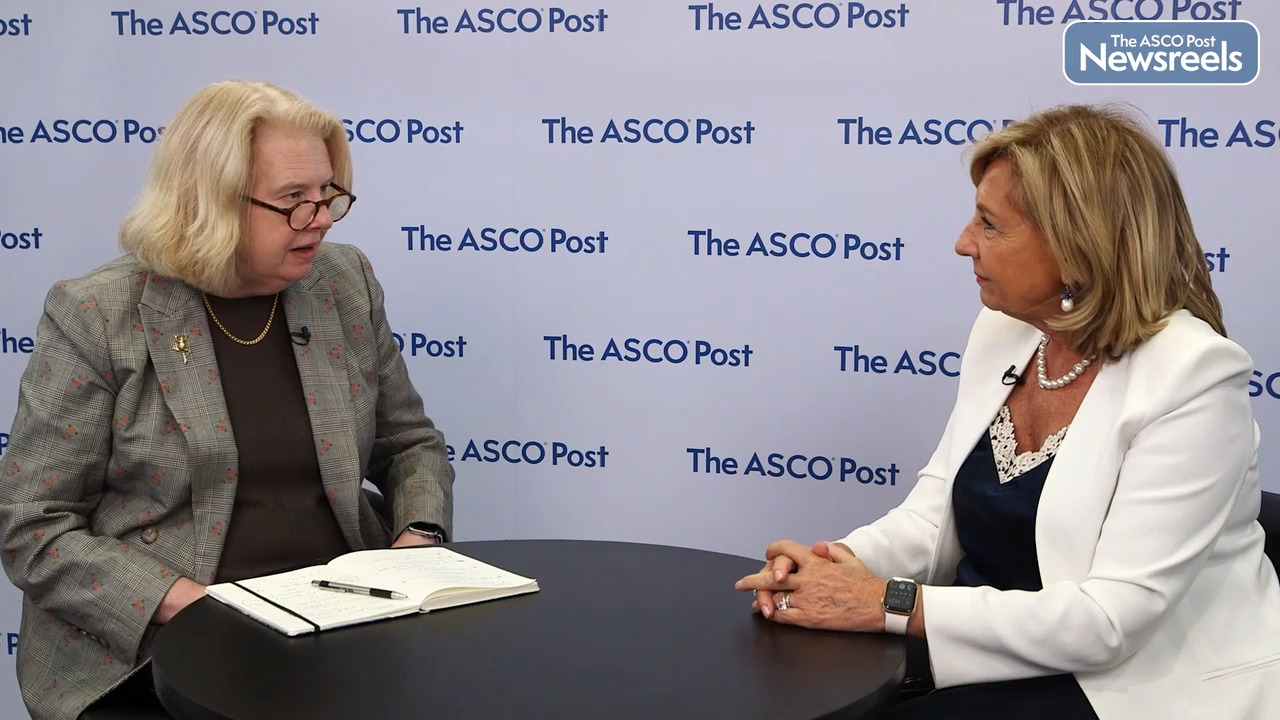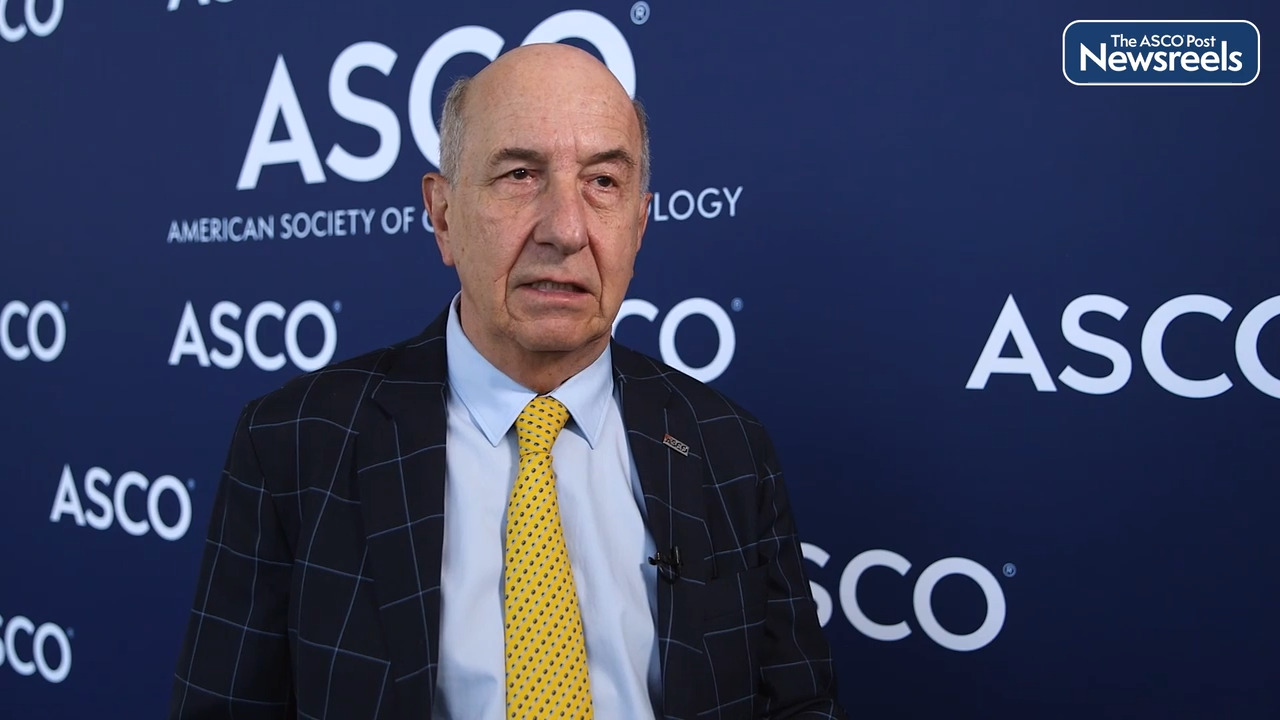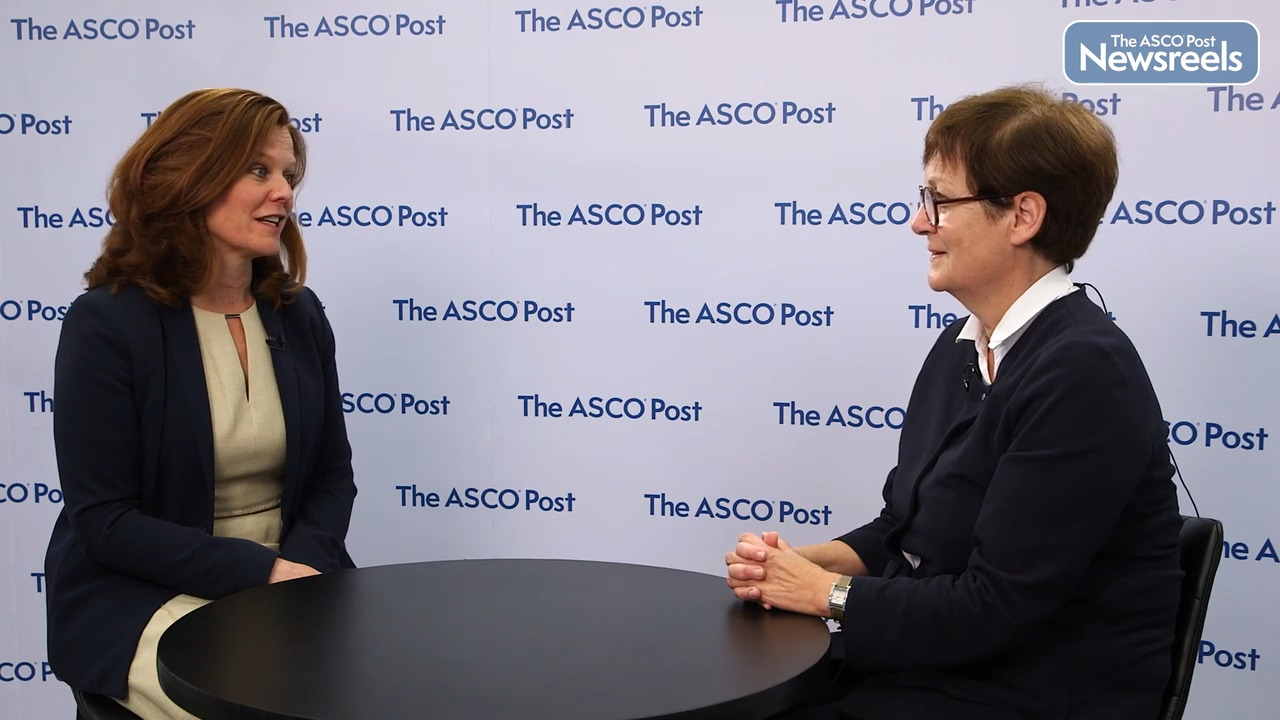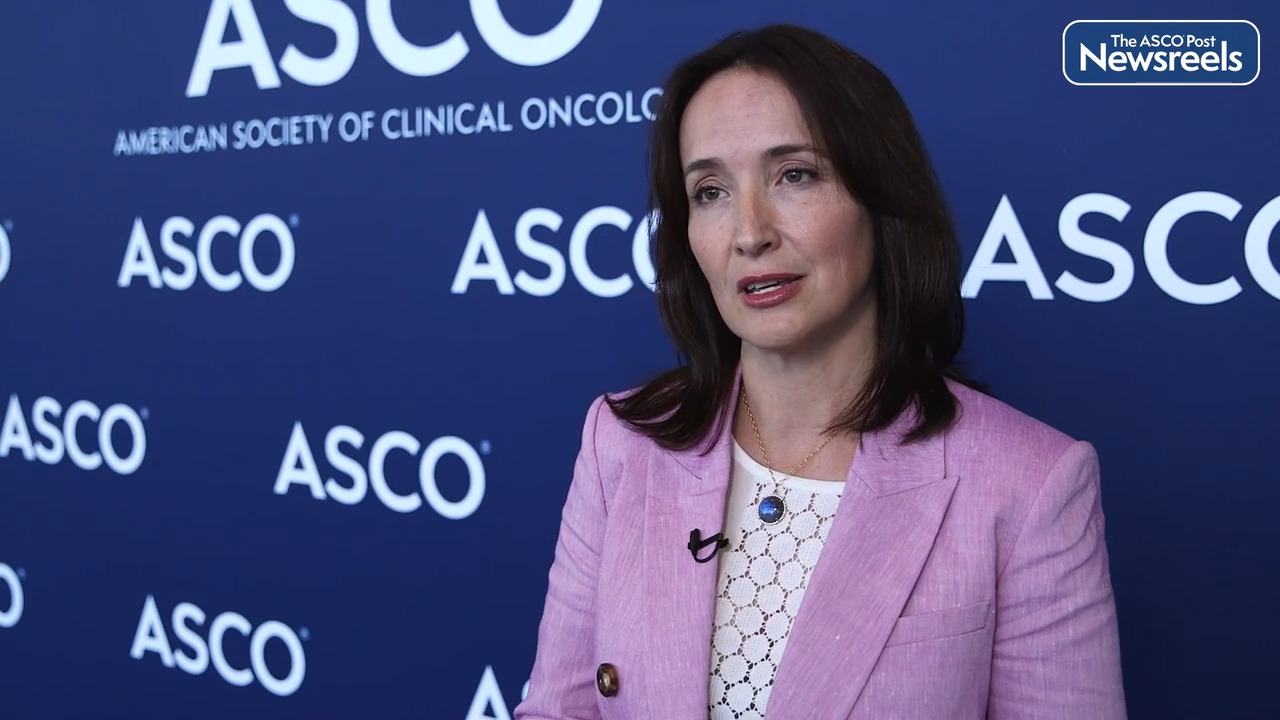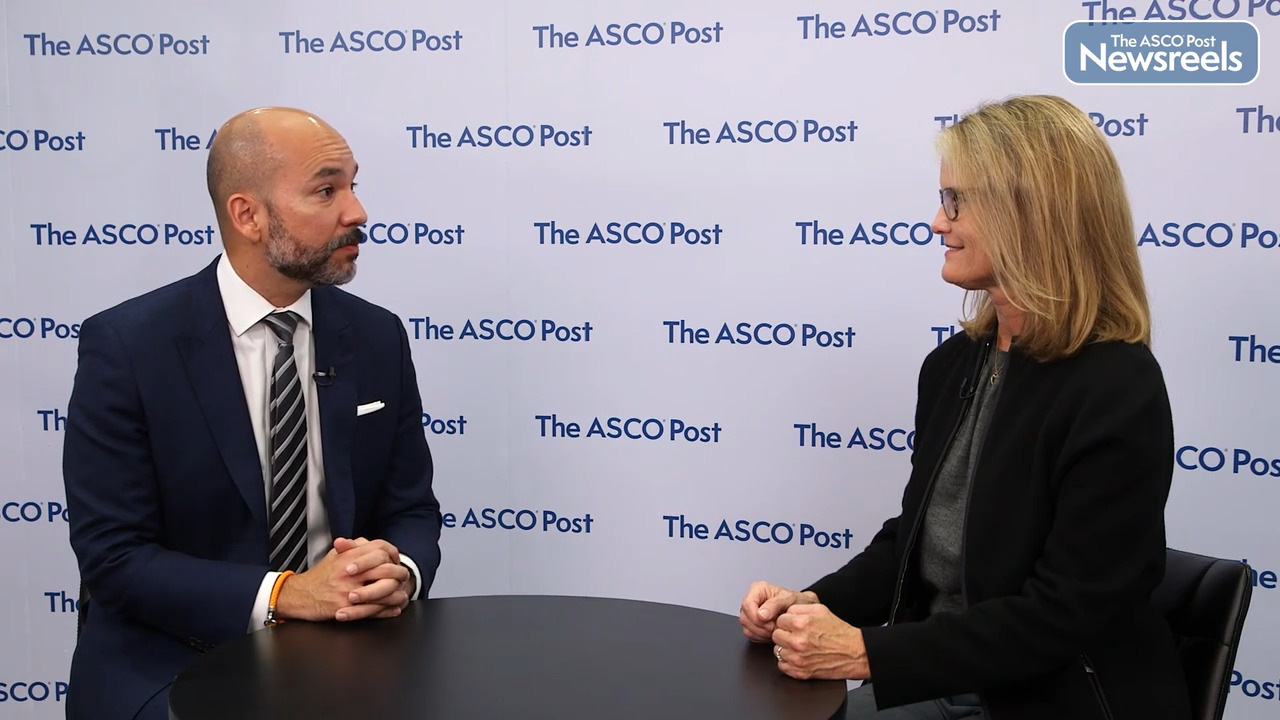Transcript
Disclaimer: This video transcript has not been proofread or edited and may contain errors.
Clifford A. Hudis:
Karen, as you know, at the end of the Obama administration, when then Vice President Biden launched the Cancer Moonshot, among the many goals was to foster more collaboration within the community of people doing cancer research, education, training, and the like/ one of those collaborations that we're really proud of is the one that we've established with the American Cancer Society and the American Society of Clinical Oncology focusing initially on our web content. Can you talk to us a little bit about how that came to be and what you see it doing and leading us towards?
Karen E. Knudsen:
Yeah, absolutely. I'm very thankful for the partnerships that we have had and the ones that we will have. I share the vision that collaboration is going to let us reduce the cancer burden much more quickly and I'm very thankful for what we've done with ASCO. I am just a year and a couple of days in as the CEO of the American Cancer Society. And I have to say, I'll never forget getting the call from you very early on in my tenure to say, "Let's think about what we can do together." And I remember that call so vividly, because, quickly, we were able to come up with areas of synergy that were just, frankly, natural fits for us to work together.
Karen E. Knudsen:
The first of which was that website. Taking the things that are on cancer.org and cancer.net that bring value and allow us to span the entire cancer continuum from prevention and screening, where we have a focus on giving information to cancer patients and their families, or as well as just average individuals who want to know about screening, and combining that with the strength of ASCO's programs on survivorship and adding that to the body of information that we can use to empower patients and families. So, it was such an easy fit for us to have a logistic piece that we needed to put together to have those websites connect with each other, but I'm so proud of what we've been able to do to allow more information to be easily accessed.
Clifford A. Hudis:
Yeah. One of the goals we had for that was to just get a broader audience for this very high quality content, and I think we're achieving that. The preliminary numbers I've seen just in the months since this started demonstrate an upper trend in not just traffic on the website, but cross traffic, exactly the referral we wanted to see happen. And the second thing, which I think you alluded to already, is that this is really just a first step, because able to do this, then what can we do afterwards? Do you have any ideas for where we might go next? I have some, but.
Karen E. Knudsen:
I definitely do, but I also want to make sure we get a chance to mention our collaboration on the Ukraine project.
Clifford A. Hudis:
Well, that came out of the established collaboration here.
Karen E. Knudsen:
Sure did, sure did. This is something, again, where the rapid exchange between the two of us, CEO to CEO, led us to be able to stand up something quickly, also in collaboration with my former cancer center, Sidney Kimmel Cancer Center at Jefferson, to put together a clinical corps of volunteers from ASCO to help us give information translated in multiple languages to patients in Ukraine who were either displaced or seeking sustainable cancer care given the unrest in the region. So to date, our collective efforts have resulted in more than 35,000 people visiting the Ukraine page to get information with almost 1,000 downloads of information and navigation of almost 175 patients to care overseas. And that's made possible through the 400 clinical volunteers that are part of the corps. So it's, again, just that natural fit of connecting patients with the right provider to get information, to allow them to sustain their care.
Clifford A. Hudis:
I think the other point is, it got us a running start on a collaboration even more broadly together with the European Cancer Organization, and I think it's 300 roughly organizations now that have joined this effort. And the net result is patients with cancer, as much as they're suffering as refugees, are at least able to find a modicum of support and continued care, especially important, both for palliation and for those patients who are receiving curative care in the middle of a war.
Karen E. Knudsen:
Exactly. And I think what we were able to stand up, in terms of putting together a platform to connect 24/7, multiple languages with that group, along with the clinical volunteer corps is something that we will be able to utilize in future times for any kind of emergency where we think we can be of impact together as organizations and with the others that have joined us.
Clifford A. Hudis:
Yeah, one would only wish that or hope that we would never have such an emergency again, but.
Karen E. Knudsen:
We know it will happen.
Clifford A. Hudis:
Yeah.
Karen E. Knudsen:
I agree. It's unfortunate that we have to do it, but if not us, then who to do this? I'm really proud of what we're able to do and the speed with which we did it, 48 hours to first set up. A pretty impressive record. So, I think it's shown that we can be nimble, we can work together, and we both follow the guideline of doing the right thing.
Karen E. Knudsen:
I look forward to, certainly, what's next. I know we share a vision to enhance the diversity of the oncology workforce, both oncology research and oncology care, and I can think of ways I think we're already discussing ways that we might work together toward that end, but further enriching our ability to empower patients, caregivers, students to access information about cancer throughout, again, that entire continuum, I think, is something we can almost double down on.
Clifford A. Hudis:
I couldn't agree more. And from the beginning, what has been very obvious, I know to me, and I believe to you, and I think to more and more of our colleagues, is the complimentary nature of our audiences and the fact that when we pull them together, we're much stronger. It's not just one plus one is two, it's one plus one is something great.
Karen E. Knudsen:
Exactly. There's something for everyone. We very much see our stakeholder as the patient and their family to access information at a level that they can understand, but also having an opportunity to tap into ASCO's much more robust information for someone who is wanting to know more deeply about their cancer, about their cancer care, biomarker testing, and what might be coming next for them. So, the way I see it, we are truly empowering a wide swath of individuals who are touched by cancer.
Clifford A. Hudis:
And just to put some specificity on it, from the beginning, the content that we put together and cross referenced includes prevention information, where you have tremendous strength initially, and our membership and our patients who come to cancer.net are curious, but on the flip side, survivorship and post-treatment care plans that ASCO had. I think those are the two areas where there's been the initial activity and the most interaction and downloads from the web. Coming next, I think there's another couple of areas that we might be looking to, which would include nutrition and exercise, which, right now, exist in two separate domains, a prevention domain and a treatment domain, and I think there's a natural synergy next up for us there. Right?
Karen E. Knudsen:
Absolutely. And these are things that patients are so interested in because they can take advantage of their own activities to help with both cancer prevention, but also potentially a better outcome through engaging in behavior modification.
Clifford A. Hudis:
Right. And with us, what they get from to from us together, I think, is evidence-based, high-quality guidance and information, and that is the most valuable resource of all. When you're worried about cancer as a patient or a family, what you need is truth. And it really should be that truth that comes from the highest quality experts, and that's what I hope we're bringing to this.
Karen E. Knudsen:
I completely agree. I love that both of us take a data driven approach. But we also listen to the patient voices. And so in this next phase, I'm sure we will hear from patients and families and physicians to ask, "Can you also include..." And I expect we'll be responsive to that as well. It's a great start.
Clifford A. Hudis:
It's great, and I really thank you for being so welcoming and interested in this little, but very important, project with so much potential and so much impact. Thank you very
Karen E. Knudsen:
My pleasure. It's a big step forward. Looking forward to doing more.
